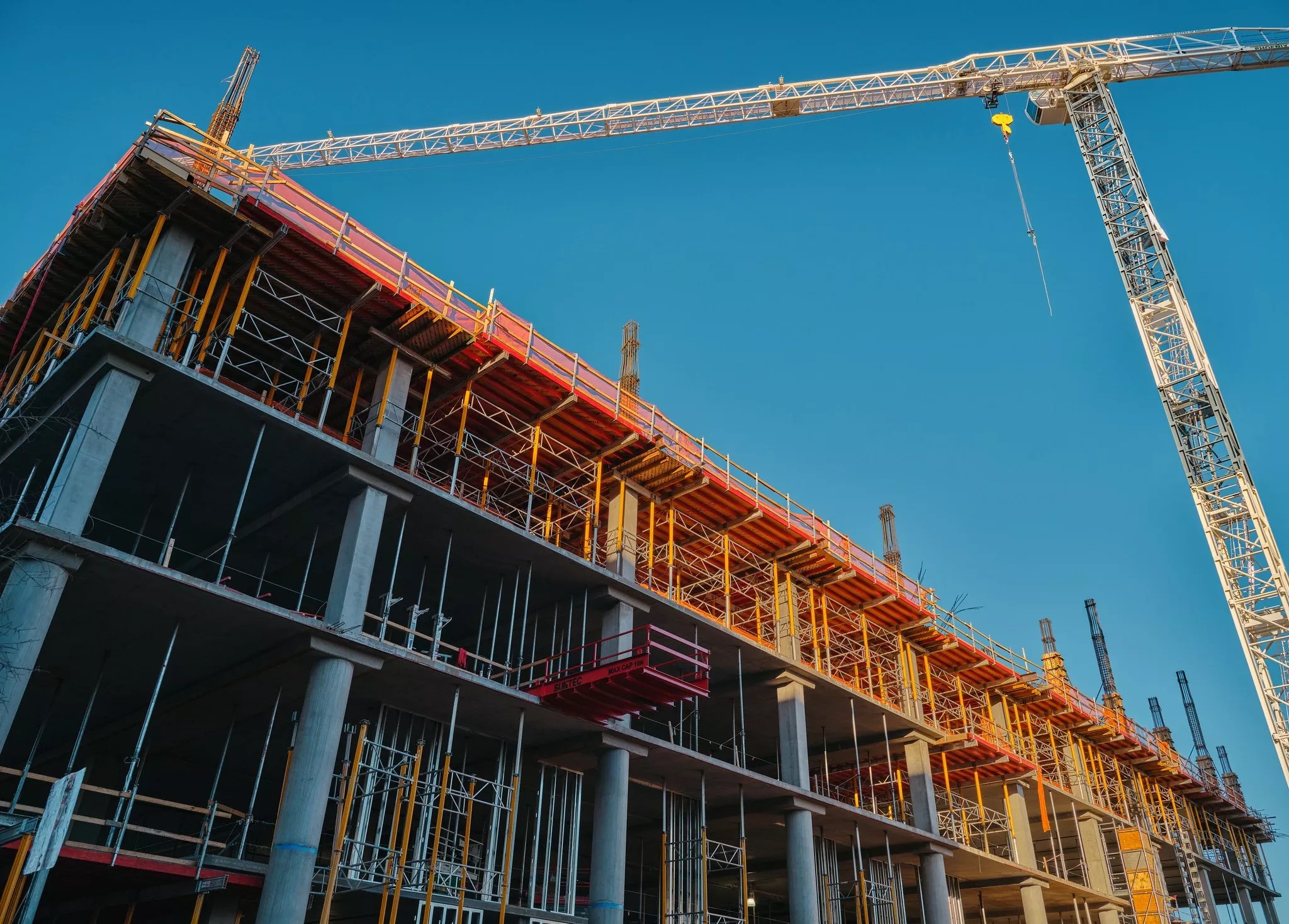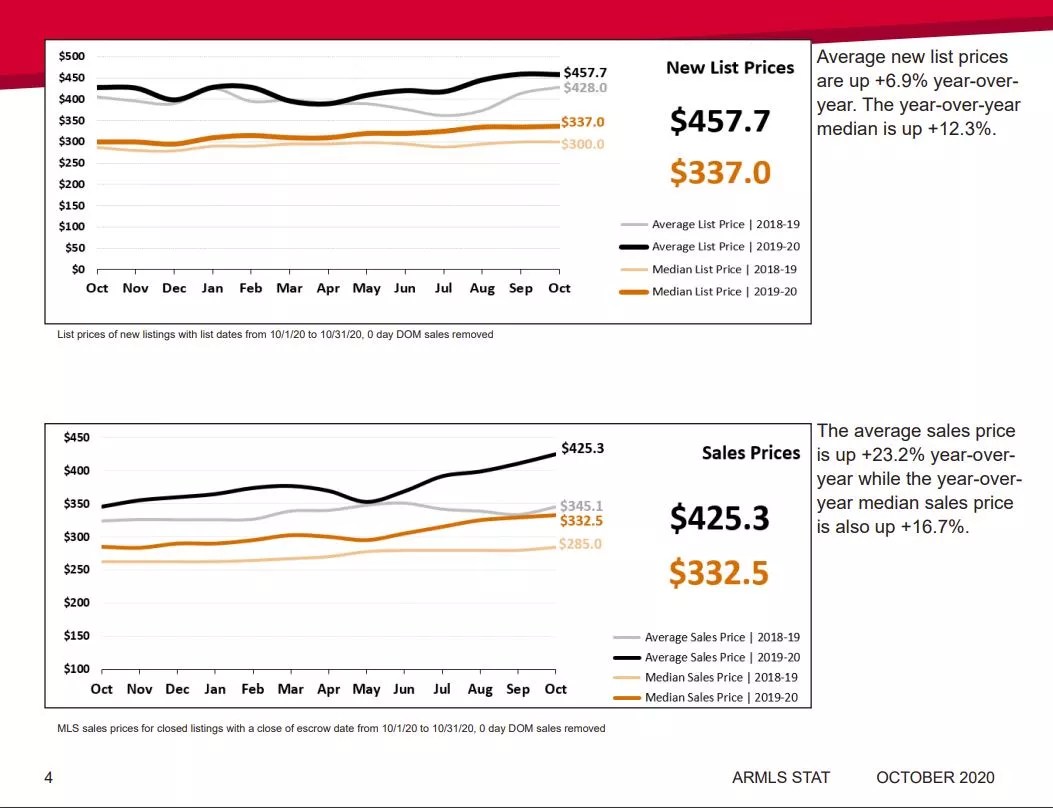

Audio By Carbonatix
It seems not even a once-in-a-century pandemic can keep metro Phoenix down.
Unemployment is still high and many businesses have been devastated, but headlines about the vaccine and a potential return to something like normal life in 2021 have many economists feeling optimistic about the coming year.
Not all industries will be affected equally: Some, like the restaurant industry, will continue to suffer even under the best of circumstances.
The Phoenix area’s all-important construction industry, though, is booming. That’s going to help.
Buildings are going up, paid for with money budgeted before the pandemic. Additional federal money is coming in for light rail. More than 170,000 people were employed in construction jobs in October, according to the Bureau of Labor Statistics (BLS), which is down slightly since February but about the same as October 2019.
In May, the Census Bureau reported that Phoenix was the fastest growing city in the country last year for the fourth year in a row. Valley cities like Buckeye and Queen Creek are also seeing many more thousands of residents move in each year. Those trends are continuing despite the pandemic and in some cases even because of it, as people downsize and trade urban apartments for homes with a backyard. Home sales prices are up 23 percent over the same time last year; the median price of a home in Phoenix is now $332,500, up from $290,000 in February.
Commercial real estate activity is also soaring in some parts of town, which bodes well for future city revenues and jobs. This week, for instance, Taiwan Semiconductor Manufacturing Co. Ltd. bought almost 1,200 acres of state land in north Phoenix for a facility that will hire hundreds of people in the next few years. On Thursday, the National Association of Realtors named metro Phoenix as one of the top 10 hottest real estate markets in the country for the pandemic and post-pandemic era.
The metro Phoenix economy has in some ways actually benefited from the coronavirus because of the influx, said R.L. Brown, founder of RL Brown Housing Reports.
People moving here “perceive rightly or wrongly that this is a place with a future,” Brown said. “They’ve lost faith in some of the other places that have been hotspots for years.”
California had a good run of economic success, but “their time has passed. The wine in the bottle is starting to turn to vinegar,” he said. “To some degree, Phoenix is a beneficiary of that, as are other places.”
Arizona currently has one of the highest unemployment rates in the country, at 8 percent. It lost more than 100,000 jobs from February to October.
Yet population growth in metro Phoenix should help fight those headwinds over the next year. At an annual Arizona State University presentation on the economy last week, experts predicted that newcomers would push the state population up to 7.5 million people in 2021, stimulating the economy and boosting job numbers.
Considering that the state’s economy hasn’t totally tanked during the pandemic, “you have to be pretty optimistic about what it could be like in the Phoenix area beyond that,” Brown said.
Such a “rosy outlook” needs to be checked with disclaimers and caveats, he added. The vaccine needs to come online with wide distribution in the first part of 2021. It needs to be accepted by large parts of the population and reduce cases and deaths. The “proper” amounts of stimulus need to come to citizens at the right time, both federally and at a state level.
“The actions of government over [the next] six months or more are critical to Phoenix’s good news, and could change the equation of Phoenix if they are not well thought out and don’t happen,” Brown said.
It’s “exciting” to think about how much the vaccine could be helping in three or four months, said Bart Hobijn, an ASU economist and one of the speakers at the recent ASU presentation. “There are plenty of jobs to come back.”
Like Brown, he added words of caution to any potentially good news.
“It’s a marathon,” Hobjin said, echoing the analogy used by Governor Doug Ducey back in March. “We’re on Mile 18. There are a few miles to go.”
Pandemic restrictions and personal risk levels have caused people to hold off on things like travel, elective surgeries, and various purchases. In theory, strong pent-up demand for movie tickets, theater, sports events, and concerts could be unleashed if people feel safer about those activities, Hobjin agreed. However, supply shortages will likely drag on the demand, and inflated prices could also result, he said.
Hobjin also noted that the pandemic has taken a heavier toll on the people in low-income parts of town, often concentrated in the southwest Valley. He agreed on the importance of government leadership, particularly at this time of rising COVID-19 cases.
“The economic benefits of having a COVID plan are enormous,” he said.
The restaurant industry, which has suffered more than others, will take longer to come back, acknowledged Dan Bogert, chief operating officer for the Arizona Restaurant Association. The state has lost between 1,000 and 1,200 restaurants this year and is down $2 billion in sales since October 2019, he said. Dining restrictions are predicted to continue well into 2021, and the industry expects takeout sales will stay at high levels for a while longer.
Still, it’s a “resilient industry” that has always shown an ability to adapt to consumer demand, he said. The association is focused on Ducey’s latest help for the industry, announced on December 2, which allows restaurants to expand their premises onto sidewalks and other public spaces with a minimum of red tape.
“There are still a lot of options on the to-go front, and we’ll continue to push for additional resources” from the state,” Bogert said.
A return to normalcy for the industry “will depend on a vaccine rollout,” he said.

One bright spot in the metro Phoenix economy has been real estate.